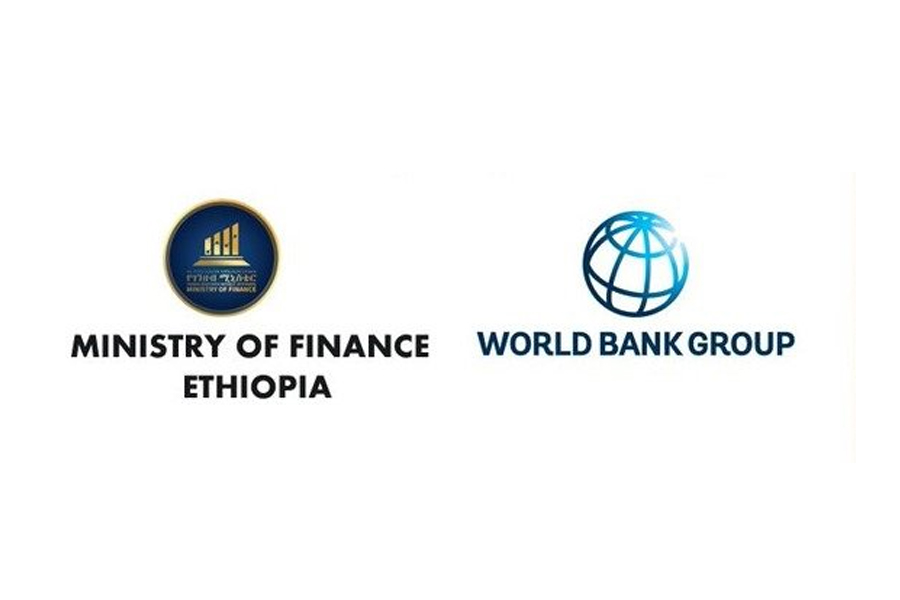
Viewpoints | Apr 13,2024
Mar 9 , 2024
By Indermit Gill , Tea Trumbic
While women have made incredible strides in the global workforce, achieving about two-thirds of men's legal rights on average since 1970, the latest data reveal a startling reality. The global gender gap is wider than previously thought. With women enjoying only two-thirds of men's legal rights, it's clear that the path toward gender equality is far from over, write Indermit Gill, a chief economist and senior vice president for development economics at the World Bank, and Tea Trumbic, who leads the World Bank's 'Women, Business and the Law' project, in this commentary provided by Project Syndicate (PS).
In May 1988, Alejandra Arevalo became the first female geologist to enter an underground mine in Chile. She defied a popular myth that a woman brings bad luck by venturing into a mine. She also broke the law.
Chilean women were forbidden to work in underground mining or in any other job that "exceeded their strength or put at risk their physical or moral condition." Arevalo's defiance helped spark a revolution. By 1993, the restrictions on women in mining had been abolished; and by 2022, women represented 15pc of the Chilean mining workforce, a threefold increase since 2007.
Equally substantial progress has occurred worldwide over the past half-century. Globally, women's legal rights have improved by about two-thirds, on average, since 1970. Major reforms have dismantled a wide array of barriers that women face at all stages of their working lives, but especially in the workplace and in parenthood. Yet, as the world marks this year's International Women's Day, it is clear that there is still a huge global gender gap.
The latest data show that the gap is much wider than previously thought. When legal differences about protections against violence and access to childcare are considered, women enjoy only two-thirds of the legal rights that men do – not 77pc, as was previously believed. The World Bank's latest 'Women, Business and the Law' report finds that no country – not even the wealthiest – grants women the same legal rights as men.
The greatest deficiency concerns safety. Women enjoy barely one-third of the necessary legal protections against domestic violence, sexual harassment, and femicide. Inadequate access to childcare services is another hindrance. Only 62 economies – fewer than one-third of the world's countries – have established quality standards governing childcare services. As a result, women across 128 economies may have to think twice about going to work while they have children in their care.
The gender gap is wider than laws on the books might suggest. For the first time, 'Women, Business and the Law' compared progress in legal reforms with actual outcomes for women in 190 economies, finding a surprising delay in implementation. Although laws on the books imply that women enjoy roughly two-thirds of men's rights, countries, on average, have established less than 40pc of the systems needed for full implementation.
For example, 98 economies have enacted legislation mandating equal pay for women for work of equal value; but only 35 economies – fewer than one out of every five – have adopted pay transparency measures or enforcement mechanisms to address the pay gap. That represents a colossal waste of human capital, and precisely when the world needs to marshal all its resources to escape the rising risk of economic stagnation. Today, fewer than one out of every two women participate in the labour force. By contrast, roughly three out of every four men do.
Closing that gap could help double global economic growth in the coming decade. The evidence is clear: economies with higher "Women, Business and the Law" scores tend to have larger female labour-force participation rates, stronger female entrepreneurship, and more active female participation in political institutions. Gender equality, in short, is both a fundamental human right and a powerful engine of economic development.
Again, it is not enough to pursue equality merely by following the laws of the books. We need comprehensive sets of policies and institutions – as well as a transformation of cultural and social norms in many countries – to empower women to become successful workers, entrepreneurs, and leaders. That means stronger enforcement mechanisms to tackle workplace violence, practical provisions for childcare services, and easier access to healthcare services for women who survive violence.
Such policies enable women to remain employed without suffering career setbacks, help close the gender wage gap, and reconfigure gender roles and attitudes related to workplace and household duties. And as more women rise to leadership positions, they inspire new generations of girls to achieve their full potential. Positive outcomes take time to realize, but they do happen.
As Claudia Goldin, the winner of the 2023 Nobel Prize in Economics, has observed, the 1960s surge in US women rising to high-level jobs did not happen by accident. It was the product of a slow but steady accretion of legal rights.
"Even if the laws didn't change women's earnings, it made their lives better and expanded their options," Goldin noted. "Workplaces became safer for them. They were no longer barred or excused from juries because of their presumed household responsibilities. They could not be fired when pregnant and could not be refused a job because they had children. They received better education and more resources, even as girls."
Levelling the playing field presents crucial economic opportunities, and not just for women. When half of humanity wins, the whole world wins.
PUBLISHED ON
Mar 09,2024 [ VOL
24 , NO
1245]

Viewpoints | Apr 13,2024

Viewpoints | Apr 17,2021

Fortune News | Mar 20,2021

View From Arada | May 03,2024

Radar | Sep 22,2024

Radar | Oct 05,2024

Sponsored Contents | Mar 28,2022

Viewpoints | Oct 10,2020

Life Matters | Jun 13,2020

My Opinion | Dec 14,2019

Photo Gallery | 178396 Views | May 06,2019

Photo Gallery | 168596 Views | Apr 26,2019

Photo Gallery | 159392 Views | Oct 06,2021

My Opinion | 137072 Views | Aug 14,2021
Commentaries | Oct 25,2025

Dec 22 , 2024 . By TIZITA SHEWAFERAW
Charged with transforming colossal state-owned enterprises into modern and competitiv...

Aug 18 , 2024 . By AKSAH ITALO
Although predictable Yonas Zerihun's job in the ride-hailing service is not immune to...

Jul 28 , 2024 . By TIZITA SHEWAFERAW
Unhabitual, perhaps too many, Samuel Gebreyohannes, 38, used to occasionally enjoy a couple of beers at breakfast. However, he recently swit...

Jul 13 , 2024 . By AKSAH ITALO
Investors who rely on tractors, trucks, and field vehicles for commuting, transporting commodities, and f...

Oct 25 , 2025
The regulatory machinery is on overdrive. In only two years, no fewer than 35 new pro...

Oct 18 , 2025
The political establishment, notably the ruling party and its top brass, has become p...

Oct 11 , 2025
Ladislas Farago, a roving Associated Press (AP) correspondent, arrived in Ethiopia in...

Oct 4 , 2025
Eyob Tekalegn (PhD) had been in the Governor's chair for only weeks when, on Septembe...

Oct 25 , 2025 . By YITBAREK GETACHEW
Officials of the Addis Abeba's Education Bureau have embarked on an ambitious experim...

Oct 26 , 2025 . By YITBAREK GETACHEW
The federal government is making a landmark shift in its investment incentive regime...

Oct 29 , 2025 . By NAHOM AYELE
The National Bank of Ethiopia (NBE) is preparing to issue a directive that will funda...

Oct 26 , 2025 . By SURAFEL MULUGETA
A community of booksellers shadowing the Ethiopian National Theatre has been jolted b...